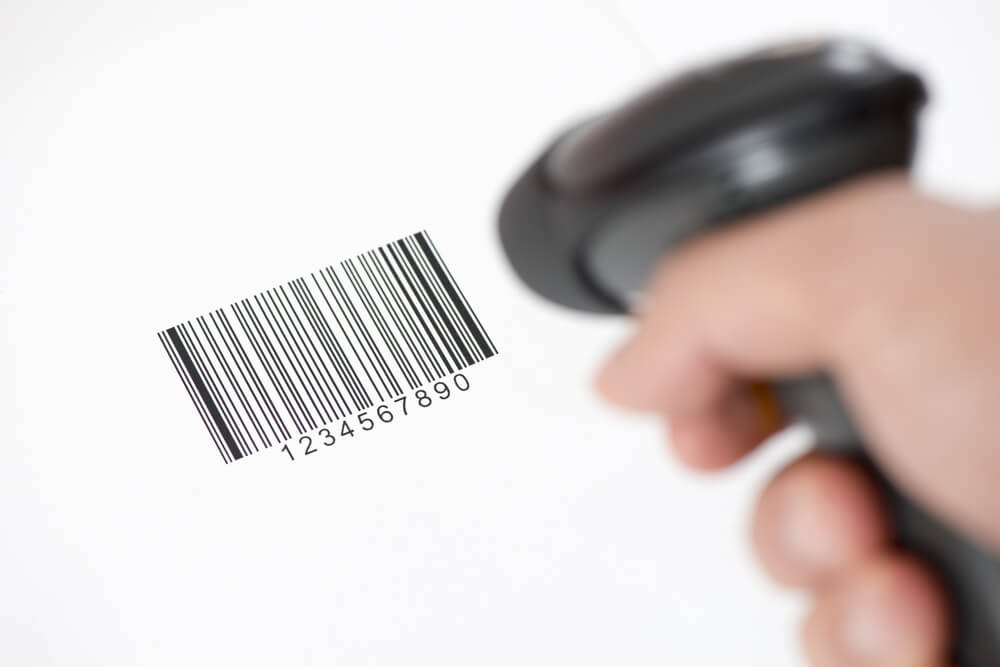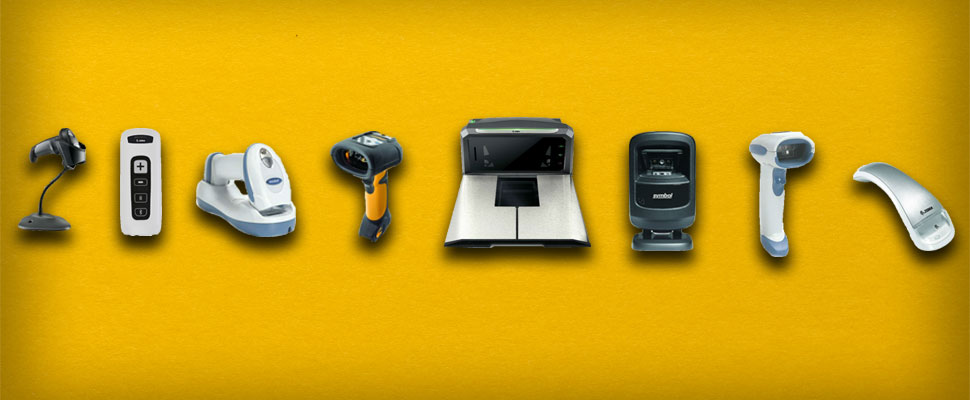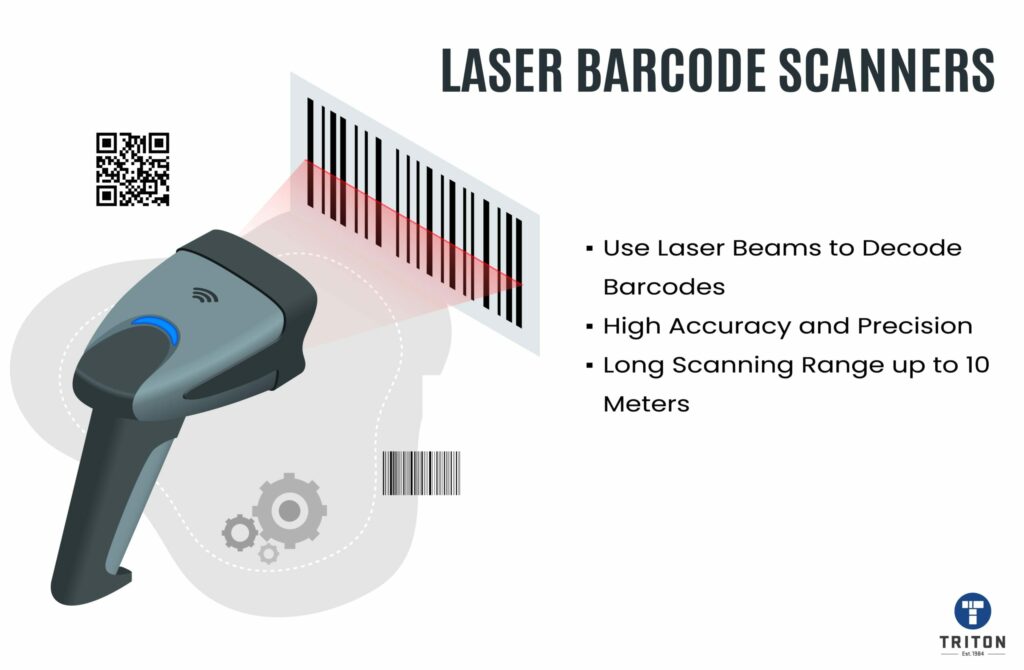Lightweight Barcodes Scanners for Fast Scanning
Lightweight Barcodes Scanners for Fast Scanning
Blog Article
Choosing the Right Barcode Scanner for Your Service Needs
Selecting the appropriate barcode scanner for your organization calls for a nuanced understanding of your certain functional requirements and environmental problems. Aspects such as scanner kind, rate, and compatibility with existing systems play a pivotal role in determining the right choice.
Recognizing Barcode Scanner Kind
When it pertains to choosing a barcode scanner, understanding the various kinds offered is vital for meeting particular business demands. Barcode scanners can be classified into numerous kinds, each developed for different applications and settings.
Portable scanners are the most usual, using transportability and simplicity of usage, making them appropriate for retail and inventory monitoring. They typically attach through USB or Bluetooth, offering adaptability in procedure. Fixed-mount scanners, on the other hand, are made for high-volume scanning applications, commonly found in production line or checkout counters. These scanners are placed in a stationary position, permitting for fast scanning of numerous products one by one.
An additional type is the mobile computer system, which integrates scanning capacities with computing power. These gadgets are perfect for area procedures or storehouse management, allowing information collection and real-time inventory tracking. Furthermore, there are commercial scanners that are built to hold up against harsh atmospheres, such as severe temperatures or direct exposure to dirt and moisture.

Trick Features to Consider
What essential features should organizations prioritize when picking a barcode scanner? Scanning speed is important, as faster scanners boost functional performance, particularly in high-volume atmospheres. The scanner's capability to check out various barcode formats is also vital; guarantee it sustains preferred kinds like QR codes, UPC, and Code 128 to fit diverse inventory things.
Resilience is another vital attribute, especially for services in tough settings. Look for models that are built to hold up against declines, dust, and moisture. In addition, take into consideration the connection choices available; whether you prefer USB, Bluetooth, or Wi-Fi, the appropriate connection can enhance integration with existing systems.

Evaluating Your Company Environment
To properly choose a barcode scanner, organizations should analyze their certain functional atmosphere. This analysis consists of assessing the physical format of the work area, the nature of the items being scanned, and the normal problems under which scanning happens. As an example, a retail environment may call for handheld scanners that can rapidly refine purchases at the checkout, while a storehouse setup could benefit from ruggedized scanners developed to sustain harsher conditions.
In addition, take into consideration the quantity of scanning required. High-throughput environments might demand innovative scanning modern technologies, such as fixed-position scanners or smart phones that can run efficiently in fast-paced scenarios. The assimilation capabilities with existing inventory management systems also play an important function; make sure the selected scanner can effortlessly link with software program systems being used.
Moreover, examine the capacity for growth and scalability. A scanner that satisfies current demands could not be adequate as organization expands. By extensively analyzing these aspects, services can choose a barcode scanner that not only meets prompt requirements however also supports lasting functional effectiveness and adaptability. This strategic strategy inevitably contributes to smoother processes and boosted efficiency.
Budgeting for Your Scanner
Having actually assessed the functional atmosphere and identified the certain requirements for a barcode scanner, the following step entails cautious budgeting to ensure a smart financial investment. Developing a budget starts with figuring out the overall prices related to the scanner, consisting of first acquisition price, functional expenditures, and prospective upkeep fees.
When choosing a barcode scanner, consider the series of available choices, from portable tools to fixed-position scanners, as prices can differ substantially. It is necessary to stabilize cost with performance; choosing a more cost effective model might bring about increased functional inadequacies if it does not meet your company requirements.
In enhancement to the equipment, consider prices associated with software application, training, and possible upgrades. While it could be appealing to reduce upfront expense, buying a top quality scanner that aligns with your operational demands can produce lasting savings via enhanced effectiveness and minimized downtime.
Last but not least, take into consideration the total cost of possession, which encompasses the scanner's life expectancy website here and possible resale worth. By thoroughly intending your spending plan, you can make certain that your financial investment in a barcode scanner will certainly boost your functional efficiency and monetary performance.
Integration With Existing Systems
Integrating a barcode scanner with your existing systems is essential for maximizing its effectiveness and making sure seamless operations. barcodes scanners. A well-integrated scanner improves operations performance, minimizes errors, and accelerates data handling. When picking a barcode scanner, visit the website take into consideration compatibility with your present software and hardware infrastructure, including your supply monitoring systems, point-of-sale (POS) systems, and business resource preparation (ERP) options
Examine whether the scanner uses basic protocols such as USB, Bluetooth, or Wi-Fi, which can promote simple integration. Additionally, analyze whether the scanner's software application offers APIs or SDKs that enable modification and combination with proprietary systems. This is specifically essential for companies with unique operational needs.
In addition, consider the scalability of the scanning option. As your business grows, your systems need to be able to fit added scanners and deal with boosted information volumes without considerable reconfiguration. Inevitably, buying a barcode scanner that effortlessly incorporates with your existing systems will yield long-lasting advantages, boosting accuracy, effectiveness, and overall productivity within your operations. Make the effort to extensively assess your combination requires prior to making a purchase decision.

Conclusion
In conclusion, picking a suitable barcode scanner navigate to this website demands a detailed evaluation of different factors, consisting of scanner types, necessary functions, and the details company setting. The ideal barcode scanner serves as a crucial tool in simplifying processes and facilitating efficient inventory monitoring.
Report this page